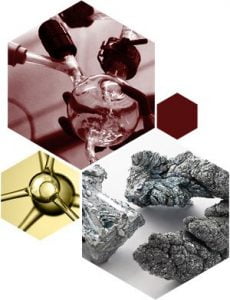
Ammonium Dihydrogen Phosphate
Properties
- We can offer items in bulk or custom. For other quantities or purities, please request a quotation.
- All prices are subject to change.
Information about Ammonium Dihydrogen Phosphate / CAS 7722-76-1
Ammonium Dihydrogen Phosphate (ADP), also known as Monoammonium Phosphate (MAP), is a white crystalline solid with the chemical formula NH₄H₂PO₄. It is highly soluble in water and chemically stable at room temperature. Its controlled dissolution allows for efficient nutrient delivery, making it valuable in applications that require a balanced release of phosphate and nitrogen.
ADP is used widely in agriculture, where it serves as an essential phosphorus and nitrogen source in fertilizers. It enhances plant growth by improving root development and overall crop yield. Due to its high-water solubility, it supports efficient nutrient absorption in irrigation systems, leading to improved agricultural productivity.
In optics and nonlinear optical applications, Ammonium Dihydrogen Phosphate is utilized in crystal growth due to its second harmonic generation (SHG) properties. These electro-optic properties enable its use in frequency-doubling applications, where infrared laser light is converted into visible or ultraviolet light. Research has explored doping ADP with various metal ions and organic molecules to enhance its optical performance, expanding its potential in photonic and laser technologies.
Beyond optics, ADP is used in ceramic production and industrial coatings, where its phosphate composition contributes to material durability, thermal resistance, and structural integrity.
ADP also plays a role in water treatment and corrosion inhibition. Its phosphate content allows it to be used in scaling prevention and corrosion control in industrial water treatment systems. Research suggests that it may help stabilize metal ions in water purification applications, highlighting its potential in industrial water management solutions.
- Yan, L., Guan, J., Wei, Z., Tang, X., & Xu, Z. (2024). Combination effect of ADP-ntercalated kaolinite and ammonium polyphosphate on simultaneously enhancing the flame retardancy and smoke suppression of epoxy resins. Journal of Vinyl and Additive Technology, 30(3), 868-879.
- Kim, J. H., Kwon, D. J., Shin, P. S., Baek, Y. M., Park, H. S., DeVries, K. L., & Park, J. M. (2019). The evaluation of the interfacial and flame retardant properties of glass fiber/unsaturated polyester composites with ammonium dihydrogen phosphate. Composites Part B: Engineering, 167, 221-230.
Safety
- H316 Causes mild skin irritation.
- H320 Causes eye irritation.
- H335 May cause respiratory irritation.
- P264 Wash skin thoroughly after handling.
- P305+P351+P338 IF IN EYES: Rinse cautiously with water for several minutes. Remove contact lenses, if present and easy to do. Continue rinsing.


